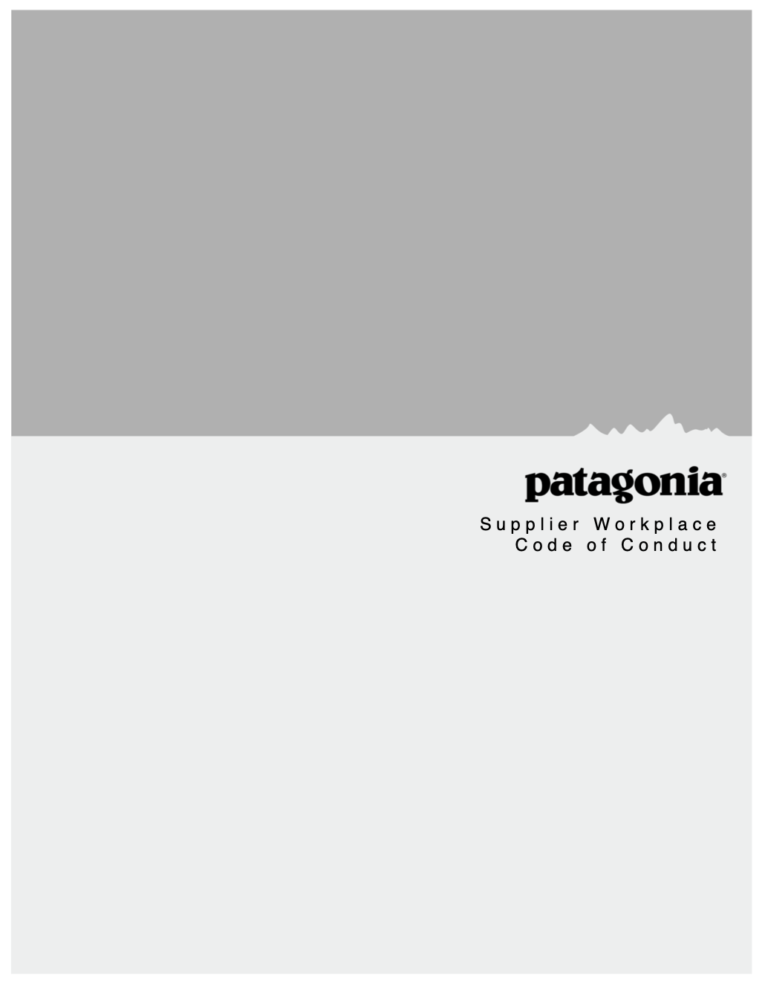The Patagonia Supplier Workplace Code of Conduct (“Code”) defines standards for fair, safe and healthy working conditions and environmental responsibility throughout our supply chain. As required by our Fair Labor Association (FLA) affiliation, the Code’s standards meet or exceed those of FLA and are based on International Labor Organization (ILO) standards and internationally accepted good labor practices. All suppliers must commit to adhering to our Code of Conduct and detailed Compliance Benchmark standards.
Requirements in this Code apply to the whole supply chain, including sub-suppliers, sub-contractors and farms. Standards equally apply to permanent, temporary, and agency workers, as well as piece-rate, salaried, hourly paid, legal young workers (minors), part time, night, and migrant workers.
We seek suppliers committed to continuous improvement who are moving forward on their sustainability journey from basic to leadership practices. All suppliers must agree to announced and unannounced assessments by Patagonia and the FLA. Patagonia expects all suppliers to make improvements when any of these Code standards are not met, and to develop sustainable management, reporting and tracking systems within the factory, to ensure ongoing compliance. Timelines for achieving compliance shall be reasonable and defined. Providing proof of correction to Patagonia for each non-compliance is also required.
Patagonia pledges to help our suppliers improve labor, health and safety and environmental conditions in the workplace, and to help our suppliers understand how to move from basic to leadership sustainability practices. We recognize that this effort requires listening to our suppliers and their employees’ needs, and requires a collaborative approach using capacity building tools such as root-cause analysis, training, and management-system development to drive meaningful change.
Patagonia’s mission is to “build the best product, cause no unnecessary harm, and use business to inspire and implement solutions to the environmental crisis.” Patagonia seeks at all times to exercise the best possible practices for the respectful and ethical treatment of workers and promote sustainable conditions in which workers earn fair wages in safe and healthy workplaces. For more information on Patagonia corporate responsibility please visit www.patagonia.com/cr.

